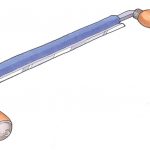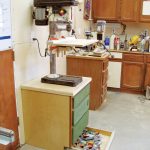We may receive a commission when you use our affiliate links. However, this does not impact our recommendations.
Sponsored by Wagner Meters

The success of each custom wood project depends on more than your woodworking skills; it also depends on keeping tabs on the wood’s moisture content.
Do you know the reasons why a woodworker should use a moisture meter? If you’re not convinced moisture measurement is important, you will be by the end.
If you’re a professional woodworker or serious hobbyist creating handmade custom furniture, kitchen cabinets, utensils, or other wooden objects, and you aren’t using a moisture meter, you’re endangering your reputation.
If you’re not convinced moisture measurement is this important, you will be by the time you reach the end of this article.
6 Reasons Woodworkers Need To Use A Moisture Meter
1. A moisture meter verifies that the raw building material is appropriately acclimated before you start working with it. Since wood is hygroscopic it needs to reach its equilibrium moisture content (EMC) before you start working with it.
2. A moisture meter helps ensure that your projects last. Wood can be damaged by either too much or too little moisture. If you work with wood that hasn’t reached its EMC, your finished project will continue absorbing or releasing moisture after you’ve completed it causing it to swell or shrink.
3. When you use a moisture meter, you’ll be able to show that you followed the proper procedures in case there’s a problem. It only takes one unhappy customer to hurt your reputation. If a customer comes back and says there’s a problem with one of your custom wood pieces, you’ll be able to show documentation obtained from your moisture meter. For this, you’ll need a quality moisture meter that’s able to take accurate readings and store them for later retrieval.
4. A moisture meter improves the quality of your projects. The moisture content of wood must be measured prior to starting any project. Failure to do this can easily result in a compromised project. Fine, handmade furniture where the wood was properly acclimated beforehand cannot be compared to pieces where care was not taken and the wood has changed dimensions.
5. Using a moisture meter builds and maintains your professional reputation. If you make your living creating fine wood furniture or other objects, your reputation rests on the satisfaction of your customers. You need to keep them happy. Using a moisture meter will give you peace of mind knowing that your project will last because the wood was properly acclimated and tested. When the moisture content is correct before you assemble and finish your project, you’re a huge step closer to avoiding unhappy customers.
6. When you use a moisture meter you’re able to prevent moisture-related problems. Monitoring and knowing the moisture content of the wood you’re using enables you to protect your projects from shrinking, swelling, cupping, cracking, warping, and more.
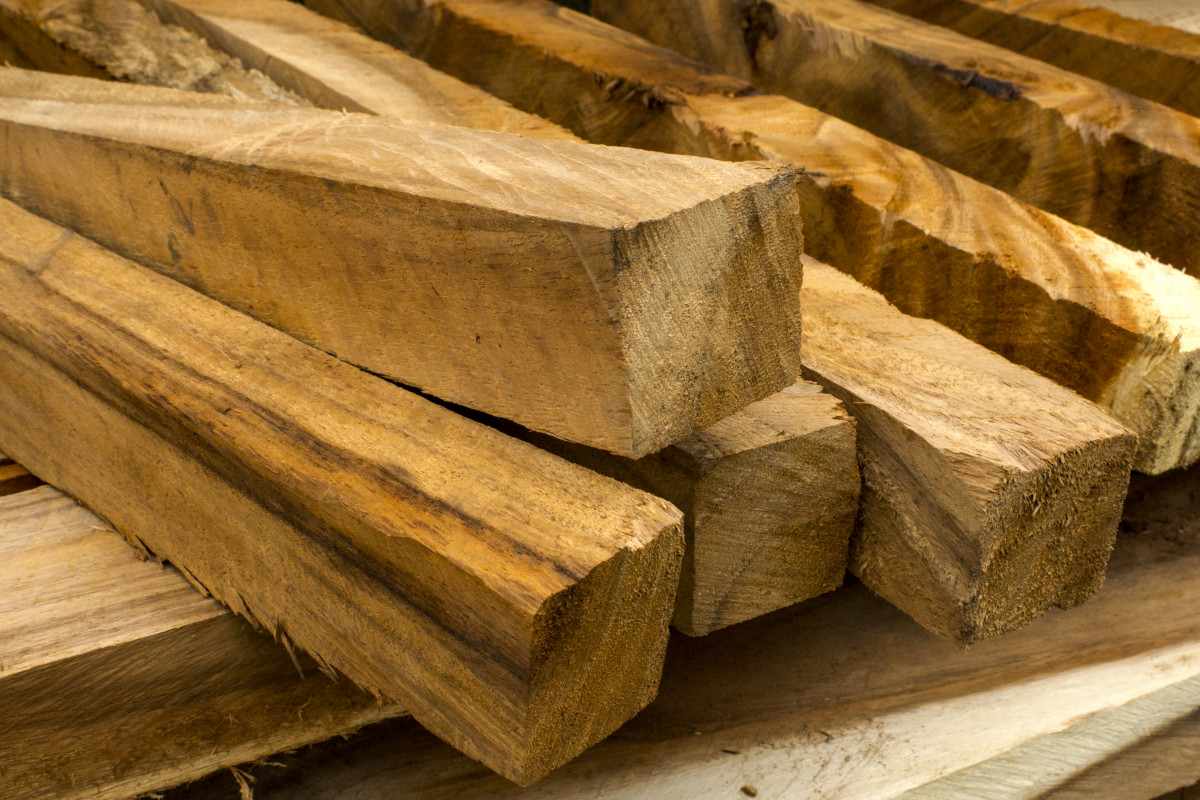
It is always a good idea to verify that the raw wood building material is properly acclimated before you start working with it.
Tips on how best to use a pinless moisture meter
Instead of using pins that create unsightly holes, pinless moisture meters use electromagnetic sensors to determine wood moisture content. A pinless meter is engineered to measure the moisture content of wood at a particular depth range. For some pinless meters, this may be down to ½ inch. If the meter is engineered for deeper readings, this may be from ¾ inch down to 1½ inches. The fact that pinless meters don’t poke holes in the wood makes them perfect for measuring the moisture content of fine wood furniture or hardwood floors.
Because pinless moisture meters are sensitive to wood density (also known as specific gravity), and because this varies according to species, you’ll need to enter the correct species setting before you take a reading.
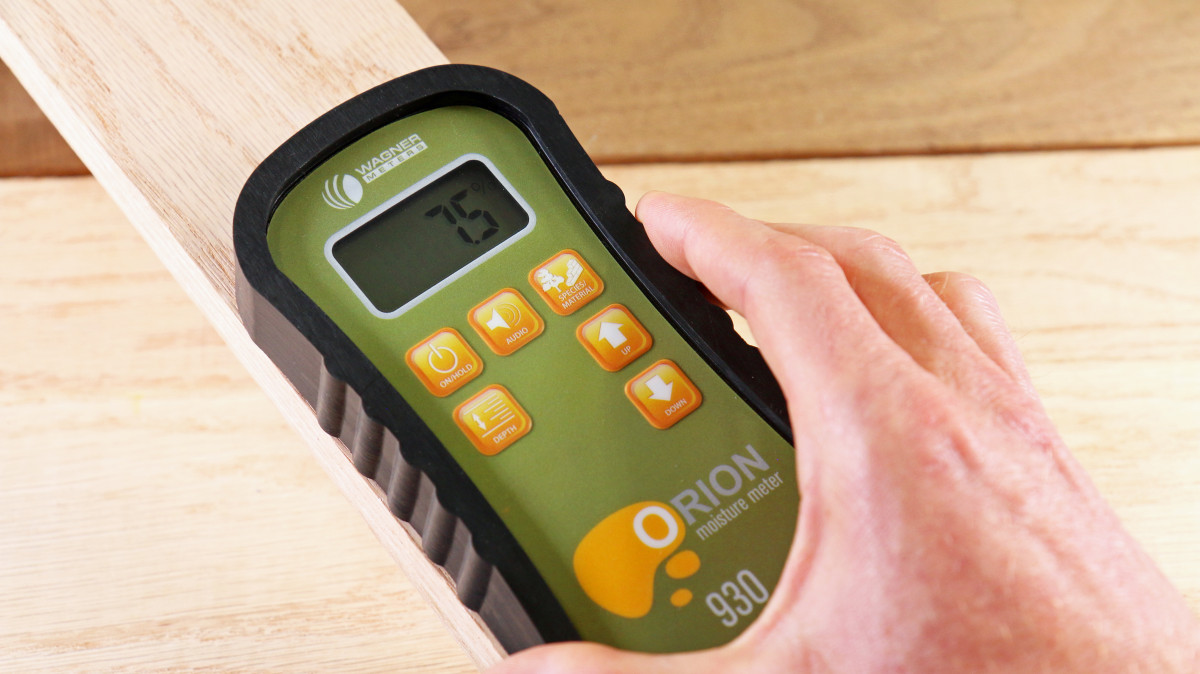
Monitoring the wood for moisture gives assurance that your projects will last since wood can be damaged by either too much or too little moisture.
Pinless wood moisture meters are also sensitive to moisture on the surface of the wood. Some meters, such as Wagner’s Orion meters, have been engineered to minimize this effect. Generally, if you see any surface moisture, wipe it off thoroughly, and wait 30 minutes before taking a moisture reading.
You’ll also want to make sure you apply a small amount of pressure to the scanner pad. If you don’t apply pressure, there will be a gap under the pad and this will affect the accuracy of the reading.
Finally, all moisture meters—both pin and pinless—need to be properly calibrated for accuracy.
Your professional reputation depends on the quality of your work. This is why the best woodworkers use moisture meters, and why you should use a moisture meter too.
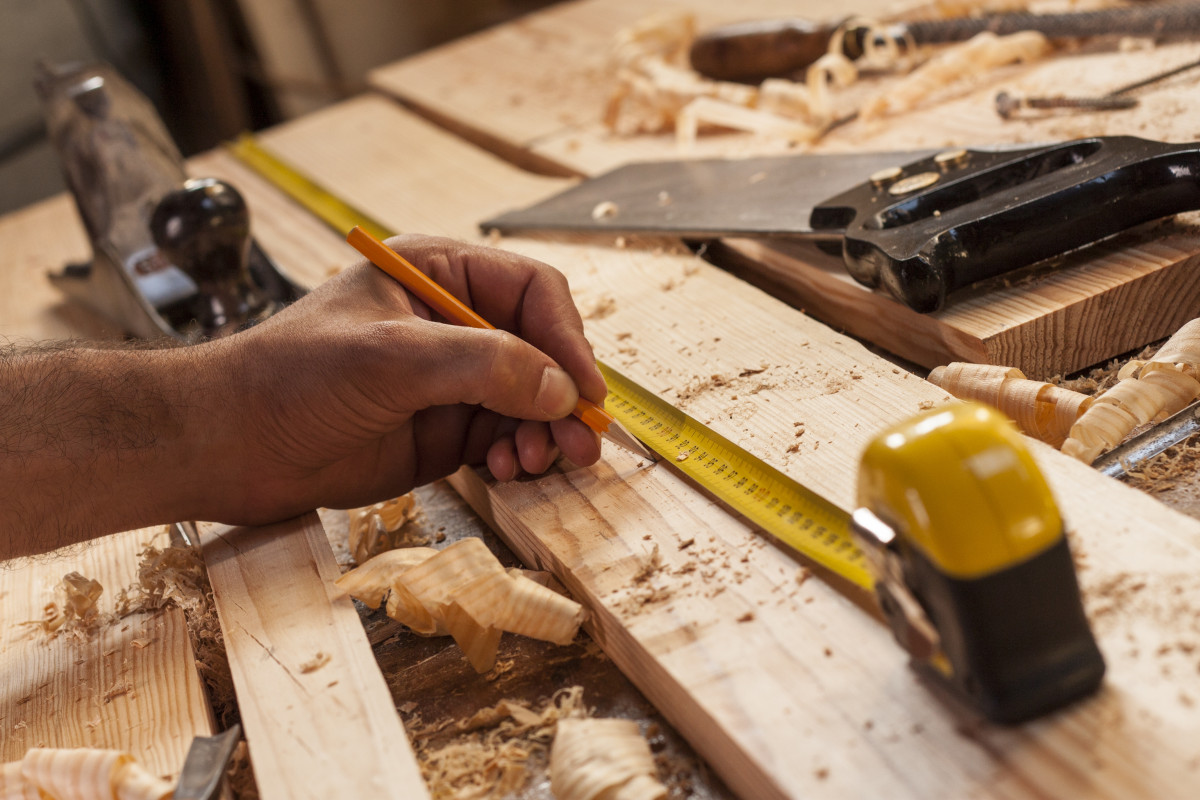
Just as taking accurate measurements improves the quality of all your woodworking projects, so does getting accurate readings of the moisture in the wood.
Choose the meter that’s right for you
There are a number of quality pinless moisture meters on the market today to choose from including our own Orion® line of meters. All Orion meters can be recalibrated at the job location by the user. The Orion meters allow a user to set the meter back to factory settings in just a few seconds. Both the Orion 940 and 950 can store and retrieve data. The Orion 950 can also calculate the EMC.
We invite you to call a Wagner representative today at 800-505-1405 to see if an Orion pinless moisture meter is the right choice for you. If it isn’t, we’ll happily suggest one that is.
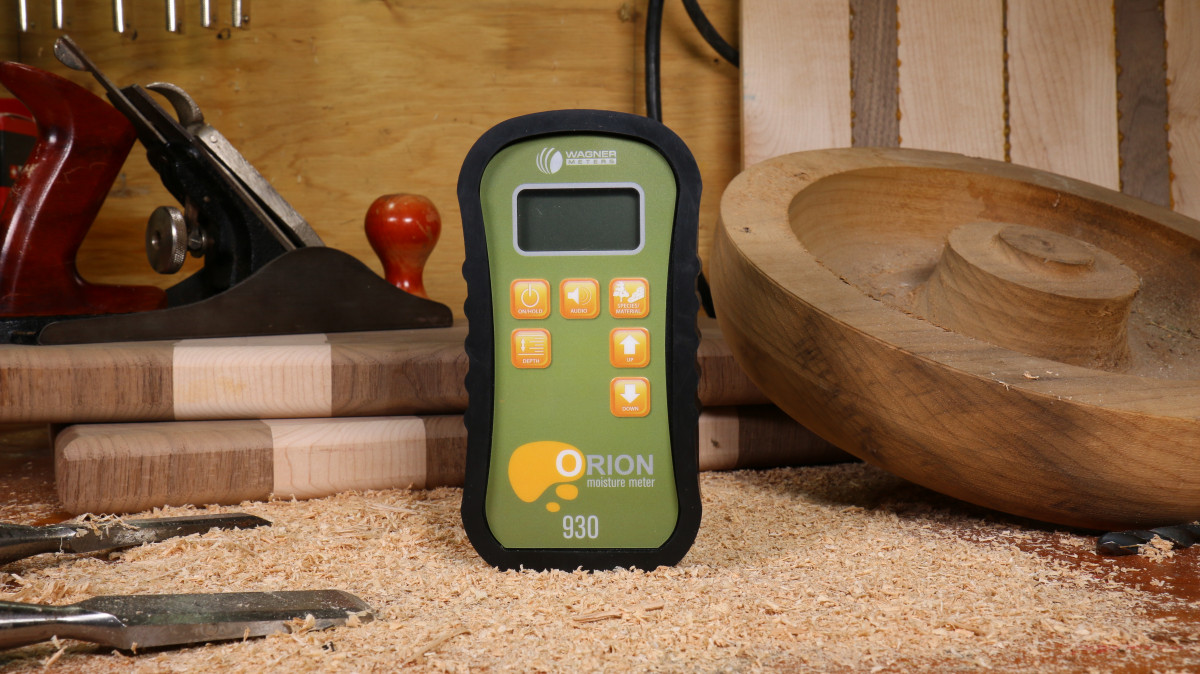
A handheld moisture meter should be thought of as a must-have tool in every woodworker’s shop.
About the Author
Mr. Wright brings more than 30 years of flooring industry experience with particular specialization in hardwood floor products and installation. Beginning in 1986, with a small sundry distributor in Medford, Oregon, Jason ascended through positions in Regional Sales, Product Development, Business Development, and Marketing programs within different flooring companies.
Jason brings a wealth of experience from starting new companies to supporting the flooring industry within the wholesale and retail sectors. Over many years, the flooring industry has come to rely upon Jason’s extensive experience. Contact him by email at jwright@wagnermeters.com.

Here are some supplies and tools we find essential in our everyday work around the shop. We may receive a commission from sales referred by our links; however, we have carefully selected these products for their usefulness and quality.







